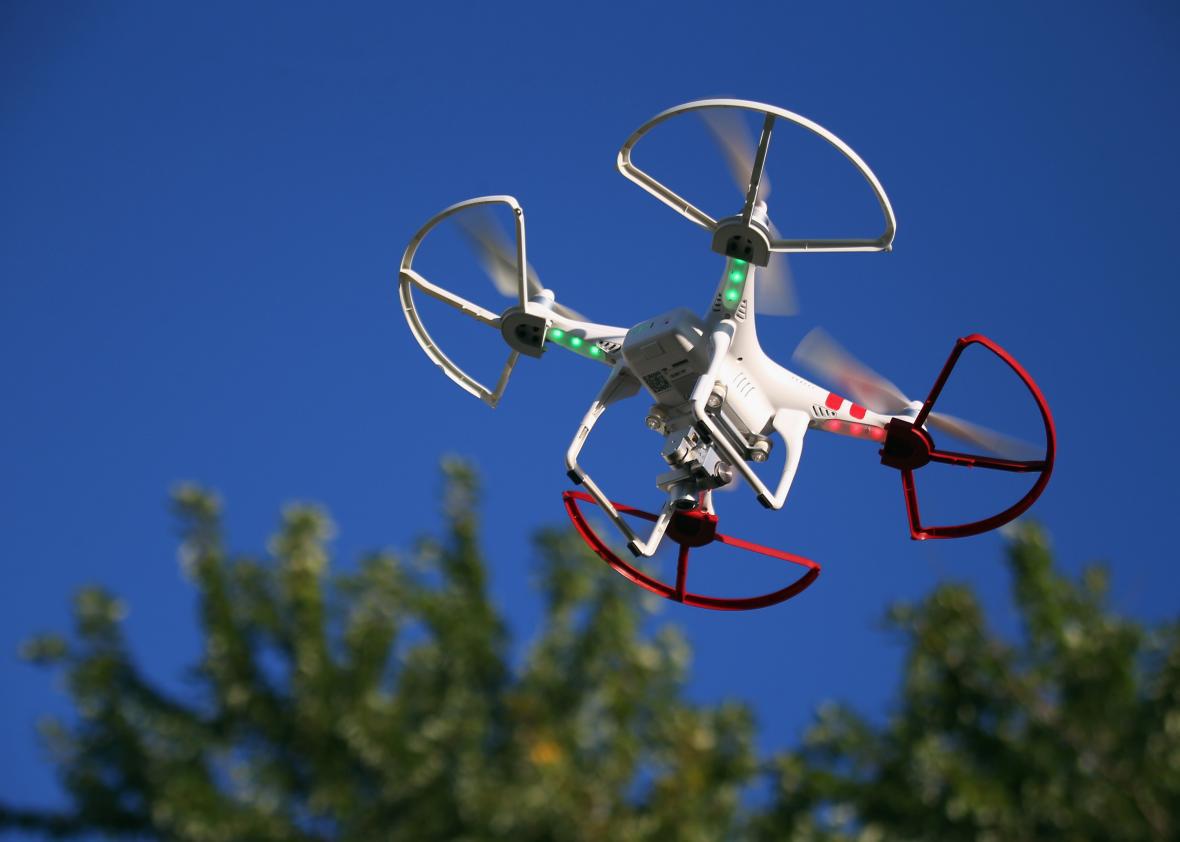The Federal Aviation Administration is a busy organization, one that oversees everything from air traffic control systems to pilot certifications. You’d think that would leave it with enough on its hands, but the current vogue for civilian drones keeps piling new new responsibilities onto the beleaguered administration. Last year, the FAA established a drone registry for pilots of unmanned aircraft. Now it’s unequivocally confirming that it’s a federal crime to shoot down a drone, as John Goglia reports in Forbes.
Goglia explains the FAA offered this ruling in response to his questions on the topic, citing 18 USC. 32, which “makes it a felony to damage or destroy an aircraft.” This is bad news if you were planning to invest in the DroneDefender, a goofy-looking gun that promised to disrupt intrusive drones by bombarding them “with radio waves that disrupt [their] remote control and GPS signals,” as Justin Peters wrote in Future Tense last year.
That said, the FAA’s stance will hardly comes as a revelation to those who’ve been paying attention. Way back in 2014, a New Jersey man was arrested for shooting down a drone. And though he was called to task for unlawful weapons charges rather than a violation of aviation law, the message was clear: However irritating drones may be, it’s probably best not to take vengeance into your own hands.
Goglia, for his own part, asks why the FAA hasn’t yet acted on 18 USC 32, especially given the increasing frequency of human-on-drone violence. “It’s time the United States put an end to these dangerous acts and criminally prosecuted those who shoot at unmanned aircraft,” Goglia writes. He has a point: Back in October, a judge exonerated a Kentucky man who had fired at a drone that intruded onto his property.
Here, at Slate we’re not so much frustrated with the FAA as we are irritated that it isn’t cooler. Over in the Netherlands, the police are training eagles to attack drones. If you’re really committed to policing the skies, that’s how you do it.
